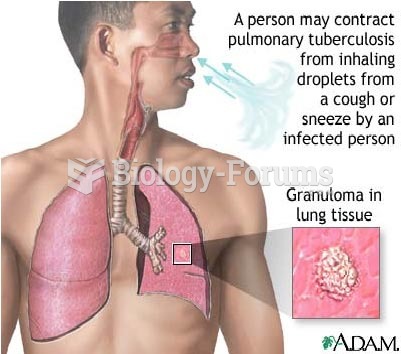Answer to Question 1
Correct Answer: 1,3,4
Rationale 1: Amphotericin B can cause ototoxicity potentially affecting both branches, cochlear and vestibular, of cranial nerve VIII. A loss of hearing can be indicative of ototoxicity and should be reported.
Rationale 2: Visual disturbances are not caused by this medication.
Rationale 3: Amphotericin B can cause ototoxicity potentially affecting both branches, cochlear and vestibular, of cranial nerve VIII. Dizziness can be indicative of ototoxicity and should be reported.
Rationale 4: Amphotericin B can cause ototoxicity potentially affecting both branches, cochlear and vestibular, of cranial nerve VIII. A ringing in the ears can be indicative of ototoxicity and should be reported.
Rationale 5: At the onset of therapy, as many as 50 of patients experience acute, infusion-related fever and chills, vomiting, anorexia, and headache. These symptoms usually subside as treatment continues and would not need to be reported.
Global Rationale: Amphotericin B can cause ototoxicity potentially affecting both branches, cochlear and vestibular, of cranial nerve VIII. A loss of hearing and ringing in the ears can be indicative of ototoxicity and should be reported. At the onset of therapy, as many as 50 of patients experience acute, infusion-related fever and chills, vomiting, anorexia, and headache. These symptoms usually subside as treatment continues and would not need to be reported. Visual disturbances are not caused by this medication.
Answer to Question 2
Correct Answer: 2
Rationale 1: The client should wash the hair at the usual frequency.
Rationale 2: Not sharing towels helps prevent the spread of the disease.
Rationale 3: Combing the medication into the hair is not necessary.
Rationale 4: There are no dietary restrictions with this medication, which is administered externally.
Global Rationale: Tinea corporis is a fungal infection of the skin. Not sharing towels helps to prevent spread of the disease. Hair should be washed at normal intervals and combing the medication into the hair is not indicated for this condition. There are no dietary restrictions.







